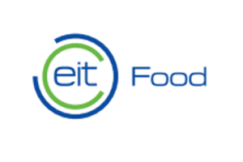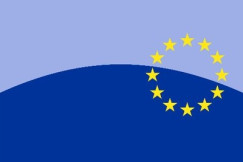Programmes
16 June 2025
Erasmus+
Programmes
16 June 2025
1. Healthy, balanced and sustainable diets for all European consumers
2. Prevention and reduction of food loss and waste
3. A climate - neutral food chain in Europe by 2050
+4 more
Login / create an account to be able to react
-
1 view

Erasmus+ is the EU Programme in the fields of education, training, youth and sport for the 2021-2027. Building on the success of the programme in the 2014-2020 period, Erasmus+ strengthens its efforts to increase the number of opportunities offered to even more participants and a broader range of organisations, focusing on the qualitative impact of the Programme and contributing to more inclusive and cohesive, greener, and digitally fit societies.
Editorial team
European Commission - DG EAC
Topics
Albania
Armenia
Austria
Belgium
Bosnia and Herzegovina
Bulgaria
Croatia
Cyprus
Czechia
Denmark
Estonia
EU-27
Finland
France
Georgia
Germany
Greece
Hungary
Iceland
Ireland
Italy
Kosovo
Latvia
Liechtenstein
Lithuania
Luxembourg
Malta
Moldova
Montenegro
Netherlands
North Macedonia
Norway
Poland
Portugal
Romania
Serbia
Slovakia
Slovenia
Spain
Sweden
Switzerland
Türkiye
Ukraine
Other
Academic / Research and VET Institutions
Business Support Organisation
Company with 250 or more employees
Cluster Organisations
Consumer Organisations
Cultural and Heritage Organisations
Destination Management & Marketing Organisations
EU Institutions
Financial Institutions and Investors
Industry Associations and Chambers of Commerce
International Organisations
Local Authorities
Media / Journalist Organisations
National authorities
Networks and Federations / Confederations
NGOs / Non-profits
Notified Bodies
Regional Authorities
SMEs (a company with less than 250 employees)
Social Economy Entity
Trade Unions
Other
-
CoC aspirational objectives
-
-
1. Healthy, balanced and sustainable diets for all European consumers
-
2. Prevention and reduction of food loss and waste
-
3. A climate - neutral food chain in Europe by 2050
-
4. An optimised circular and resource-efficient food chain in Europe
-
5. Sustained, inclusive and sustainable economic growth, employment and decent work for all
-
6. Sustainable value creation in the European food supply chain through partnership
-
7. Sustainable sourcing in food supply chains
-
Share
The Erasmus+ programme for 2021-2027 includes an overall estimated budget of €26.2 billion. This budget nearly doubles the funding of the previous 2014-2020 programme. Specifically, the funding comprises €24.574 billion in current prices, allocated through the new Multiannual Financial Framework (MFF) 2021-2027, supplemented by an additional top-up of €1.7 billion expressed in 2018 prices.
Furthermore, approximately €2.2 billion in complementary funding is available from the EU external cooperation instruments, such as the Neighbourhood, Development and Cooperation Instrument (NDICI) and the Instrument for Pre-Accession (IPA III).
The funding is allocated as follows:
Approximately 70% support mobility opportunities for learners and staff across higher education, vocational training, adult education, etc.
The remaining 30% of the budget is allocated to cooperation projects and policy development activities. These projects enable organisations to cooperate internationally, develop innovative educational methods, exchange good practices, and build networks.
The funding
The European Union (EU) is primarily responsible for it. The programme’s estimated budget of €26.2 billion is allocated under the EU’s Multiannual Financial Framework (MFF) 2021-2027.
The European Commission works closely with National Agencies across member states and with the Education, Audiovisual and Culture Executive Agency (EACEA), which assists with the operational delivery, monitoring, evaluation, and support of projects and activities funded by Erasmus+.
Erasmus+ funding is provided primarily in the form of grants aimed at supporting education, training, youth, and sport initiatives across Europe and beyond, and the financial entities are the following:
The European Commission (policy and budget authority);
National Agencies (national-level management and implementation);
The Education, Audiovisual and Culture Executive Agency (operational management).
External cooperation instruments, such as the Neighbourhood, Development and Cooperation Instrument (NDICI) and the Instrument for Pre-Accession (IPA III), also contribute. These instruments provide additional funding streams to complement the Erasmus+ budget for projects involving partner countries outside the EU, facilitating international cooperation and capacity building.
Documents
Comments (0)
See also
-
12
EIT FOOD: Single Project Co-funding Opportunity (IMP-STR-2325-OC-01)
- Categories
- 2. Prevention and reduction of food loss and waste 3. A climate - neutral food chain in Europe by 2050 4. An optimised circular and resource-efficient food chain in Europe +3 more
-
1 view
Interreg – European Territorial Cooperation
- Categories
- 2. Prevention and reduction of food loss and waste 3. A climate - neutral food chain in Europe by 2050 4. An optimised circular and resource-efficient food chain in Europe +3 more
-
3
PRIMA (Partnership for Research and Innovation in the Mediterranean Area)
- Categories
- 2. Prevention and reduction of food loss and waste 3. A climate - neutral food chain in Europe by 2050 4. An optimised circular and resource-efficient food chain in Europe +3 more




